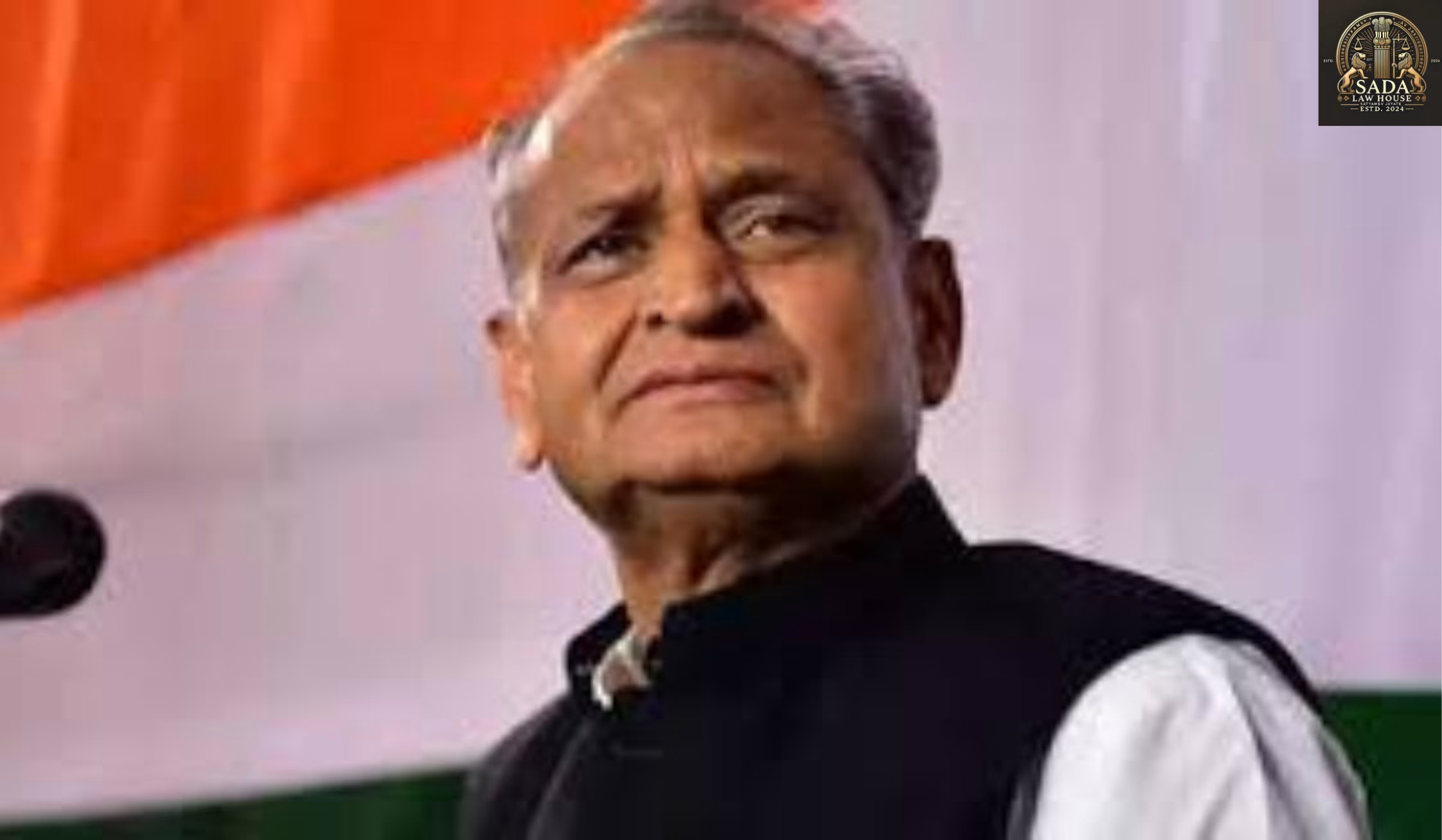Ashok Gehlot Criticises Change in Election Commission Appointment Process
- Shristi singh
- 11 AUG 2025

Former Rajasthan Chief Minister Ashok Gehlot criticises the Union government’s decision to replace the Chief Justice of India with the Union Home Minister in the Election Commission of India appointment panel, warning it could undermine the independence of India’s electoral process.
Introduction
Senior Congress leader and former Rajasthan Chief Minister Ashok Gehlot has strongly opposed recent changes to the Election Commission of India appointment process. The new rule replaces the Chief Justice of India with the Union Home Minister on the selection panel — a move Gehlot warns could compromise the body’s independence and public trust in free and fair elections.
The Press Conference in Jaipur
Speaking at a press meet in Civil Lines, Gehlot addressed journalists and party workers beneath the shade of a neem tree — a scene reminiscent of small, open-air political briefings in the Northeast India.
A “Save Democracy, Save Constitution” banner waved behind him as he held up a copy of the amended rules, pointing to the clause that removed judicial representation from the panel.
Background: How the Panel Worked Before
Until this change, appointments to the Election Commission were made by a three-member panel:
The Prime Minister of India (Chair)
The Leader of the Opposition in the Lok Sabha
The Chief Justice of India
Now, the Union Home Minister has replaced the CJI, following a bill passed in the Lok Sabha last month.
Gehlot’s Key Arguments
1. Loss of Judicial Oversight
The judiciary’s presence ensured a non-political, impartial voice in the appointment process. Its removal, Gehlot argues, weakens credibility.
2. Risk of Political Bias
With two of three panel members from the ruling party, appointments may prioritise loyalty over merit.
3. Decline in Public Confidence
Gehlot stressed that elections depend on trust, warning that perceived bias could damage democratic legitimacy.
He urged civil society, retired judges, and scholars to oppose the change and announced public awareness drives across Rajasthan’s urban and rural areas.
Government’s Defence
Union Law Minister Kiren Rijiju defended the reform, citing Parliament’s constitutional authority. He argued that many democracies allow executive-only appointments without judicial involvement.
The BJP in Rajasthan accused Gehlot of fear-mongering, claiming Congress fears losing upcoming elections.
Public and Political Reactions
In Jaipur’s academic circles, law students debated the reform’s constitutional implications. Some supported judicial involvement for checks and balances, while others believed the government should prove the process remains fair.
In smaller towns like Sikar and Bhilwara, local Congress units distributed pamphlets explaining the Election Commission’s role and the impact of the appointment change.
Lessons from the Northeast
In states like Meghalaya, Nagaland, and Mizoram, electoral credibility depends heavily on public trust in the neutrality of election bodies. Even small procedural changes often face civil society scrutiny — a trend analysts believe could emerge in Rajasthan and other states.
Expert Opinions
Political analyst Sanjoy Hazarika emphasised the dangerous precedent of removing the judiciary from such appointments, warning that reinstating it later would be politically difficult.
Professor Meenakshi Joshi of Jawaharlal Nehru University noted that the timing — just months before major elections — adds to public suspicion, regardless of actual fairness.
Conclusion
Gehlot called the reform a “dangerous experiment”, pledging to raise it in Parliament and the courts. He framed the debate as beyond party politics, stressing that it’s about safeguarding electoral integrity for future generations.
As the controversy grows, the change in the Election Commission appointment process could become a defining issue in Rajasthan’s political discourse — much like in the politically aware Northeast, where institutional trust is paramount.






